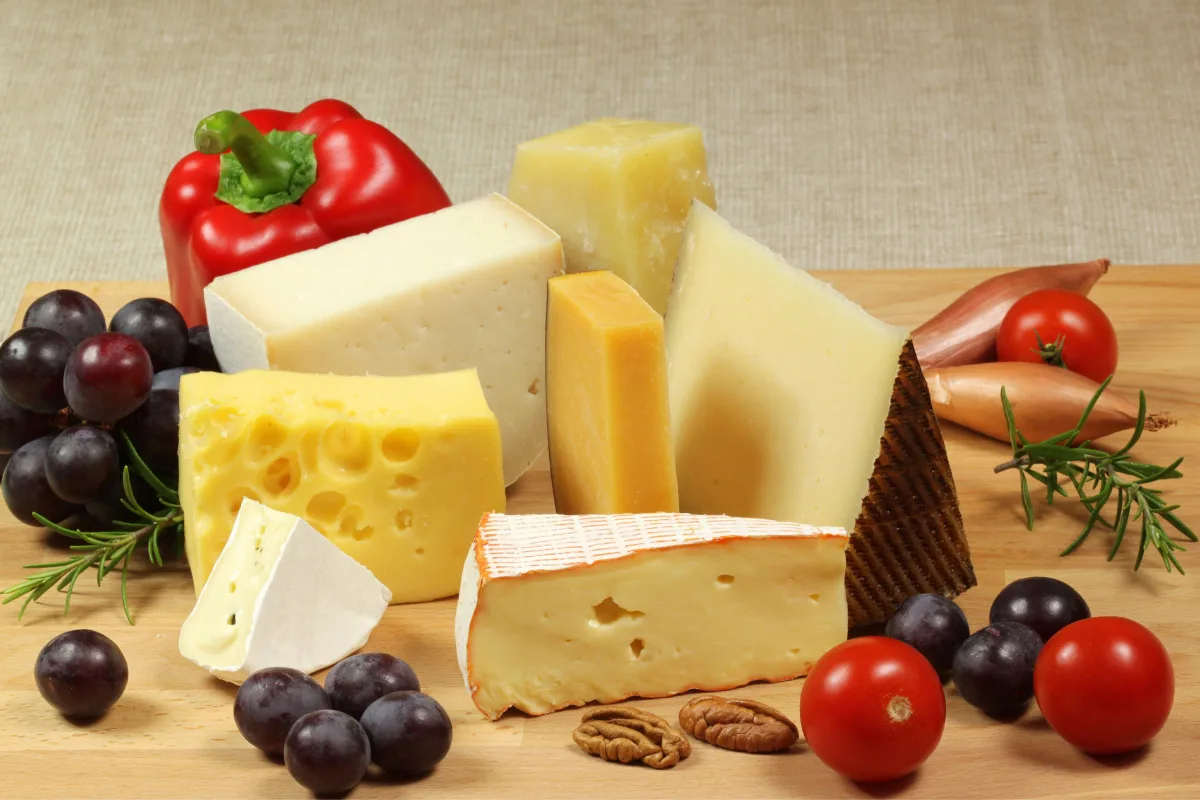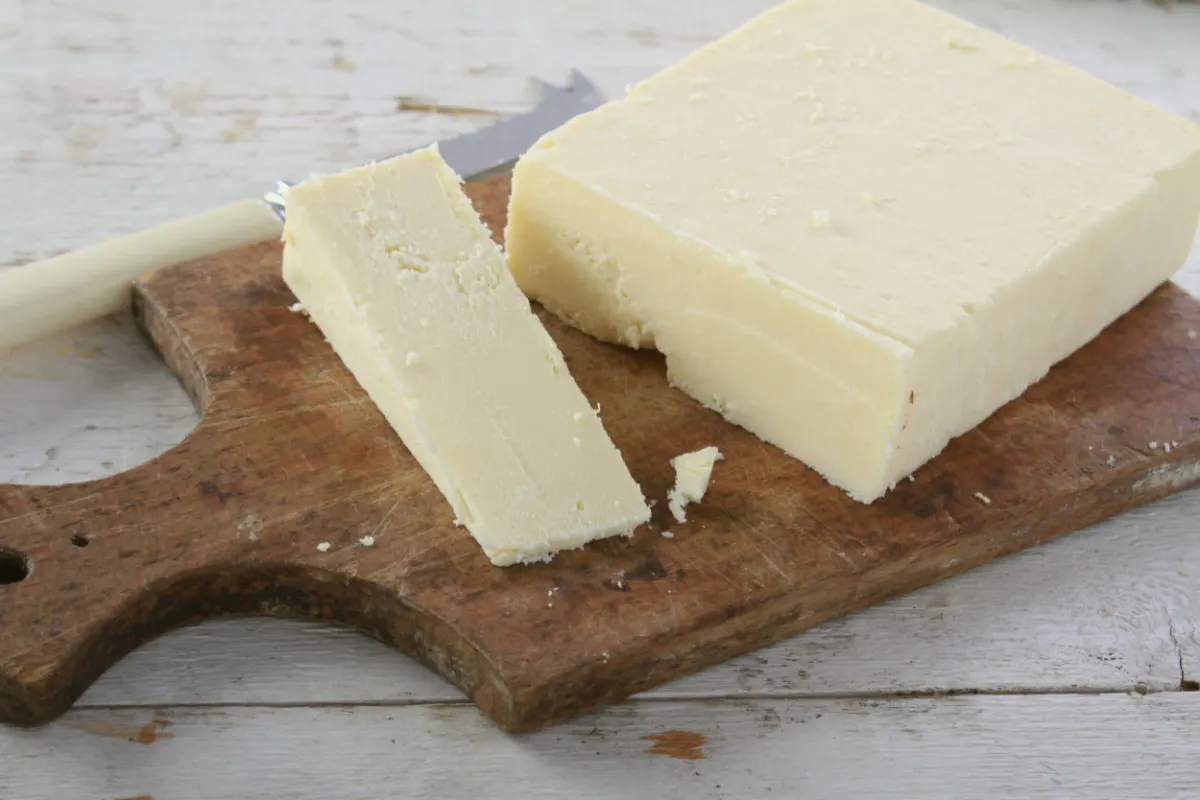When it comes to cheddar cheese, there are loads of great substitutes that would work just as well.
Ah, Cheshire cheese. It keeps well for long, tastes amazing and is perfect any time of the day; what more could you want from food?
It’s got a taste and texture so unique, you might have some trouble finding an alternative for Cheshire cheese that would suffice for your recipe, meal or even craving!
But don’t worry, below is a review of some of the best Cheshire cheese substitutes in the market. So, just have a look through and make your pick!
Jump to:

What is Cheshire cheese?
Produced in the English county of Cheshire, Cheshire cheese is known for its mildly thick texture, crumbly texture, and acidic flavor.
Besides being crumbly, Cheshire cheese has also got this moist and flaky texture and it tastes mildly salty.
There are three distinct kinds of this cheese available, with each being just as unique as the last.
Types of Cheshire Cheese
- White Cheshire
Milky, soft and white with the signature crumble reminiscent of Cheshire cheese, white Cheshire is a white cheese and one of the most commonly available kinds of Cheshire.
- Red Cheshire
To make red Cheshire cheese, annatto is added to regular Cheshire cheese to change the hue to a unique shade of deep orange.
- Blue Cheshire
This blue-veined cheese, known as Blue Cheshire, is created the old-fashioned way, entirely by hand. Its characteristic sourness and robust scent come from a typical aging period of two months which makes it unique and fortifies it with qualities that provide some of the health benefits of blue cheese.
Substitutes for Cheshire cheese

I’d say there’s really no perfect alternative for the unique flavor and texture Cheshire cheese offers but there are some pretty darn good substitutes you can try (the same goes for halloumi substitutes!). Check out a few of them below!
- White Cheddar
White cheddar is a smooth and firm natural cheese with a nice buttery taste that becomes crumbly with age, making it similar to Cheshire. This delicious cheese might not taste exactly like Cheshire does as I’ve found it’s a versatile cheese that’s got a mild flavor but it’s a popular cheese and from experience, it still melts and crumbles just as nicely.
- Lancashire Cheese
Hailing from the North of England, Lancashire is a crumbly cheese that’s quite similar to it’s southern neighbour, Cheshire. It’s also got a tangy flavour that’s comparable to Cheshire’s and if you don’t mind that it’s a bit creamier, it would make a great Cheshire cheese substitute for you.
- Wensleydale Cheese
Wensleydale is a crumbly cheese that originates from the Northern region of England. It’s a mild cheese with a slightly sweet flavour and is also one of the most popular English cheeses that’s similar to Cheshire cheese.
- Danish Blue Cheese
Danish Blue cheese is a strong and salty cheese with a crumbly and semi-soft texture. While it’s quite different from Cheshire cheese, this type of cheese with blue veins can be used as a flavorful substitute.
- Feta Cheese
Feta cheese is a crumbly cheese with a sharp flavor that is typically made from sheep’s milk which gives it a distinct tang in contrast to the slightly milder Cheshire cheese made from cows milk. The salty and crumbly nature of this milk cheese makes Feta similar to Cheshire, although it is a bit softer with a creamy texture.
- Caerphilly Cheese
Crumbly but firm in texture, salt, and fresh in taste; Caerphilly cheese makes a unique substitute for Cheshire cheese. It’s one of the best aged cheeses I’ve ever tried and a great cheshire cheese sub. Caerphilly’s a hard cheese so it’s slightly different from Cheshire in that regard, but using it as a replacement adds a new dimension to whatever meal it’s being used as an ingredient in!
Have in mind that the substitute cheese’s flavor and texture could not be identical to that of Cheshire cheese; therefore, you might need to try out a few various kinds before settling on the ideal option!
Cheshire cheese FAQs

I’d say Cheshire has got this slightly tangy and salty taste. As a dry cheese, it crumbles really nicely and it lacks some of that good ol’ creaminess other kinds of cow’s cheese have got but it’s still moist enough to have a nice texture.
Cheshire is light, crumbly and tangy, just like feta, but is much less salty and creamy than it. Feta has also got this unique grainy texture while Cheshire does not. Either way, Feta still makes a great substitute for Cheshire Cheese.
Other than having a good crumble, Cheshire cheese also does well under some heat as it melts wonderfully and makes a great cheese for cooking. As a particular favorite, I enjoy it melted on grilled toast topped with red apple and red onion relish. Yum!
Cheshire and Cheddar are both manufactured using cow’s milk and share a similar flavor profile. Cheddar cheese, like Cheshire cheese, is a firm cheese that melts nicely and, in its aged form, crumbles wonderfully as well.
If you’re all out and wondering what else to go for, check out these cheddar cheese substitutes for more options. And for veggies, we’ve got some of the best substitutes for bell pepper as well as some great kale replacement options, substitutes for mint and best alternatives for kidney beans.
But back to to the cheese, there are loads of Cheshire cheese substitutes to choose from; it all depends on your personal preferences and which are more readily available for you.
I’d recommend picking white cheddar or Lancashire if your recipe requires some heat as I’ve found they melt really well.
I’ve also tried danish blue with some crackers as a snack and feta over salads instead of Cheshire and it was nothing short of amazing.
Caerphilly and Wensleydale, on the other hand, go great with bread and fresh fruits, so consider using them if your recipe involves those.
If you want to branch out to a cheese that can be the centrepiece of a meal, try some brie with these lovely brie pairings!
BOTTOM LINE: the big takeaway from all this is that there are loads of Cheshire cheese substitutes to choose from like white cheddar, feta, Lancashire, caerphilly, danish blue and Wensleydale cheese. They’re all superb choices and would go well with whatever recipe they’re used as a replacement for Cheshire cheese.
